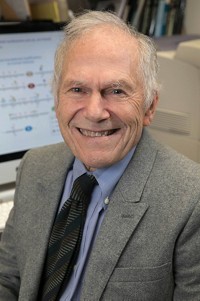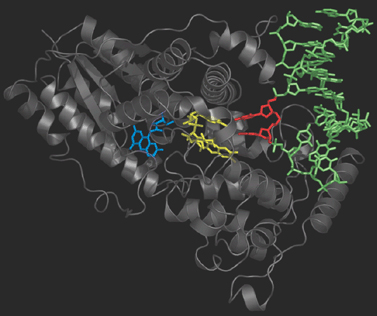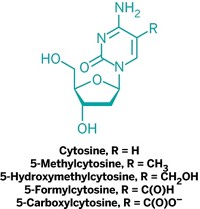Advertisement
Grab your lab coat. Let's get started
Welcome!
Welcome!
Create an account below to get 6 C&EN articles per month, receive newsletters and more - all free.
It seems this is your first time logging in online. Please enter the following information to continue.
As an ACS member you automatically get access to this site. All we need is few more details to create your reading experience.
Not you? Sign in with a different account.
Not you? Sign in with a different account.
ERROR 1
ERROR 1
ERROR 2
ERROR 2
ERROR 2
ERROR 2
ERROR 2
Password and Confirm password must match.
If you have an ACS member number, please enter it here so we can link this account to your membership. (optional)
ERROR 2
ACS values your privacy. By submitting your information, you are gaining access to C&EN and subscribing to our weekly newsletter. We use the information you provide to make your reading experience better, and we will never sell your data to third party members.
Biological Chemistry
Nobel Prize In Medicine
Awards: Three honored for unraveling the role of a chromosome protector in cell division
by Carmen Drahl
October 5, 2009
This year's Nobel Prize in Physiology or Medicine shines the spotlight on the ends of chromosomes and the essential cell biology that takes place there. The three researchers sharing the prize have demonstrated that these ends, called telomeres, and the enzyme that makes them, known as telomerase, protect chromosomes and ensure that they're faithfully copied each time a cell divides. The discovery has launched major research efforts in areas where cell division takes center stage, including aging and cancer. It also "has stimulated the development of new therapeutic strategies," the Nobel committee said in its citation.

Three U.S.-based researchers will share the prize, the one hundredth medicine prize to be awarded. Elizabeth H. Blackburn, 60, a professor of biology and physiology at the University of California, San Francisco; Carol W. Greider, 48, a professor of molecular biology and genetics at Johns Hopkins University School of Medicine; and Jack W. Szostak, 56, a professor of molecular biology at Massachusetts General Hospital and a professor of genetics at Harvard Medical School, each have been awarded one third of the $1.4 million prize.
Blackburn, who holds both U.S. and Australian citizenship, and London-born Szostak joined forces in the early 1980s to demonstrate that a repeating DNA sequence, CCCCAA, from the ends of chromosomes in a single-celled organism called Tetrahymena, could protect chromosomes in a completely different organism, yeast, from degradation. It later came to light that telomere DNA does this job in nearly all the branches of the tree of life, from paramecia to people.
Greider, then Blackburn's graduate student, set about uncovering how telomeres are made. They found telomerase, an enzyme that contains an RNA component that includes the repeating CCCCAA sequence, which acts as a template to build the telomere. Telomerase's RNA component acts as a platform that supports DNA polymerases as they copy an entire chromosome, ensuring that those polymerases don't miss the chromosome's ends.
Szostak and Blackburn went on to show that defects in telomeres can lead to early aging in cells, whereas intact telomeres put off aging. Meanwhile, Greider showed that the telomerase enzyme also delays the aging process. Although scientists have since found that telomere biology is just one component of the complex process of aging, researchers still hold out hope that turning telomerase on and off might offer a way to control aging.
Abnormal telomerase activity has also been found to play a role in cancer and some inherited diseases, such as a specific form of anemia, though the specifics are still being worked out.
The newly-minted Nobelists have shared other awards for their work in telomere biology, most notably the 2006 Lasker Award, among the most prestigious U.S. awards for biomedical research. Despite these and other awards the three have netted, "you can't really ever expect something--I had no expectations," Greider said regarding the prize announcement in a phone interview with the Nobel Foundation.
Thomas H. Lane, president of the American Chemical Society, congratulated Szostak, a long-standing ACS member, in a statement. "Dr. Szostak's selection is a wonderful illustration of chemistry's connections to other sciences, especially medicine," Lane said.








Join the conversation
Contact the reporter
Submit a Letter to the Editor for publication
Engage with us on Twitter